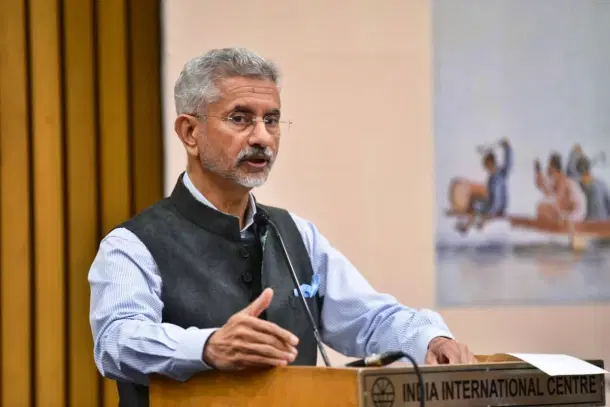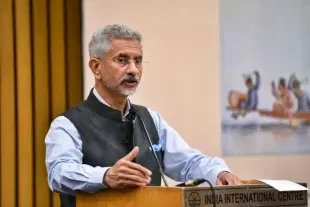News Brief
'Reasonable Supposition' That India-China Disengagement On LAC Will Lead To 'Some' Improvement In Ties: Jaishankar
Kuldeep Negi
Nov 17, 2024, 12:46 PM | Updated 12:46 PM IST
Save & read from anywhere!
Bookmark stories for easy access on any device or the Swarajya app.


External Affairs Minister S Jaishankar on Saturday (16 November) said that the disengagement part of the “problem” with China along the Line of Actual Control (LAC) in eastern Ladakh has been addressed with last month’s understanding and the next focus would be on de-escalation
He called it a “reasonable supposition” to expect some progress in India-China relations after the recent disengagement but refrained from hinting a complete reset of ties.
“I see disengagement as disengagement; nothing more, nothing less. If you look at our current situation with China, we have an issue where our troops are uncomfortably close along the LAC which required us to disengage,” he said at the Hindustan Times Leadership Summit.
“And this last understanding of October 21 is the last one of the disengagement agreements. So with its implementation the disengagement part of the problem is addressed,” he said, Indian Express reported.
Responding to a question on whether the recent troop disengagement could mark the beginning of a reset in India-China relations, Jaishankar clarified that the present state of ties does not warrant such a conclusion.
Last month, the Indian and Chinese militaries completed the disengagement process in Demchok and Depsang along the LAC in eastern Ladakh, after an agreement to resolve the long-standing border dispute.
The two sides also resumed patrolling activities in the two areas after a gap of almost four and a half years.
According to Jaishankar, de-escalation is the logical next phase after disengagement.
“Where the disengagement will lead us, it is a reasonable supposition that there will be some improvement in the ties,” he said, adding that it remains a “complicated” relationship.
Responding to another question on Republican candidate Donald Trump’s victory in the US presidential election, Jaishankar said it reflected a lot about the United States.
“This US election tells us a lot about America. It tells us that many of the concerns and priorities that won Donald Trump a first term have become more intense, not gone away,” he said.
The results of the US Presidential Elections, Jaishankar observed, indicate increasing dissatisfaction among the American electorate regarding globalisation.
He added that Trump’s win highlighted the undercurrents of disenchantment among voters who feel left behind by global economic and social shifts.
“If the American political verdict is interpreted, it reflects the electorate’s disenchantment and unhappiness with the impact of globalisation on them,” he noted, adding that the US will become more self-aware under the Trump administration regarding its economic and manufacturing interests.
Jaishankar also emphasised that although the US is a global power, it requires international partnerships and cannot do everything on its own.
Highlighting India’s unique diplomatic position, Jaishankar said that the country is among the few capable of engaging with both Russian President Vladimir Putin and Ukrainian President Volodymyr Zelenskyy.
“We have not put forward a peace plan. We don’t think it’s our business to do that,” said Jaishankar, stressing India’s role in fostering dialogue.
Kuldeep is Senior Editor (Newsroom) at Swarajya. He tweets at @kaydnegi.





